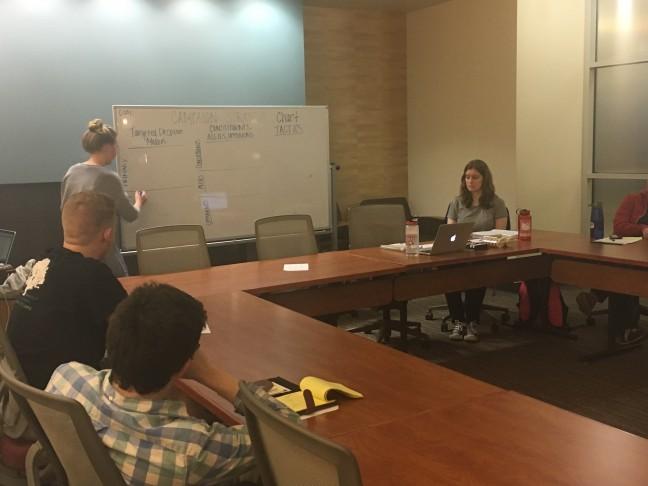The University Affairs Committee strategized Tuesday how to garner faculty and student support for its textbook affordability resolution, which would prohibit additional classroom costs.
Associated Students of Madison unanimously approved the textbook affordability resolution at its meeting last week Wednesday after co-authors of the resolution presented the unfairness of additional classroom costs.
The resolution states ASM is against additional class costs besides textbooks and laboratory fees. The resolution targets classes that use programs that require a subscription which affects students’ grades, like Tophat and Masters in Chemistry, Colin Barushok, co-author of the resolution, said.
“It’s not like a textbook — if you can’t afford a textbook you can rent one, buy a used one or go to the library,” Barushok said. “You can’t do that with programs like Masters in Chemistry.”
But Barushok said the resolution needs more faculty and student support before it is presented to Faculty Senate and the University Affairs Executive Committee.
The committees need to see the support of their colleagues, as well as students, in order to respond to concern regarding the additional classroom costs, he said.
“These are powerful committees that have huge influences on the institution so we have a lot of momentum,” Barushok said. “But we need to start doing some heavy-lifting now. We need to start talking to faculty and other students.”
University Affairs Committee Chair Sally Rohrer said it’s important to keep in mind the impact the extra costs have on University of Wisconsin students from lower-income backgrounds.
ASM Rep. Carmen Gosey said she did not realize these types of additional fees were occurring, but that it would be an “awesome” campaign to work on to reduce student costs.
The committee then proceeded to list possible tactics they could employ to encourage support for the resolution, including informing and petitioning faculty and staff and talking to the heads of departments.
When considering tactics to grow support for their resolution, the committee also cited three potential opponents to the bill, including the companies that own the programs students use, faculty who may not want to switch to different programs and possibly the UW System.
The committee will consider gathering cost statistics to demonstrate the amount of additional fees students pay for extra classroom programs. The committee will next meet the Tuesday after spring break.


